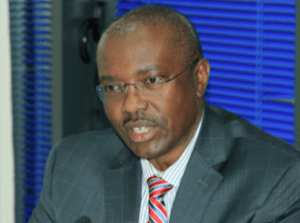Growing inequality, polarization in household income pose challenge to Ghana’s fight to end poverty – Kerali

Despite successes in cutting poverty by more than half and extreme poverty to less than 10 per cent, Ghana’s efforts at ending poverty faces some challenges.
According to the Ghana Country Director of the World Bank, Dr. Henry Kerali, over the last two decades, Ghana has made major strides in reducing poverty.
“Poverty has been cut by more than half, from over 50 per cent of the population in 1991 to 21 per cent in 2012. Furthermore, extreme poverty declined even faster, falling from nearly 40 per cent to less than 10 per cent over the same period,” he said.
Dr. Kerali however, indicated that the successes, in part reflect sustained growth and low inflation, which are the results of prudent fiscal policies in the context of broader macroeconomic management.
Dr. Kerali was speaking at a presentation of a study titled ‘Fiscal Policy, Inequality and Poverty: A Commitment to Equity (CEQ) Assessment of Ghana’ in Accra Thursday October 29, 2015.
The challenges, Dr. Kerali said are growing inequality and polarization in household income, large spatial disparities in welfare and a challenging macroeconomic environment.
The study a collaboration with the CEQ Institute of Tulane University, and the University of Ghana with funding from the Bill and Melinda Gates Foundation analysed the Ghana Living Standards Survey (GLSS).
It found that Ghana could improve its tax collection in some sectors and on some products such as bottled water. Using the Gini Coefficients, the study found that Ghana is doing well in spending taxes to benefit the poor and investments in primary education were seen to benefit the poor most.
The study also found that through the National Health Insurance Scheme healthcare reached most poor people.
The school feeding programme was also seen as beneficial to the poor, but the researchers suggested that government should sort out the delays associated with paying caterers on the programme.
By Emmanuel K. Dogbevi
